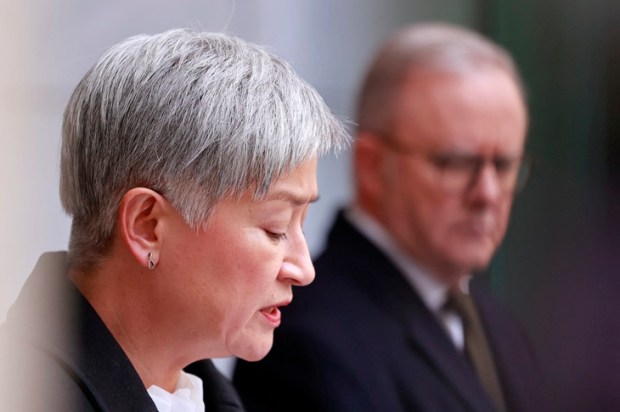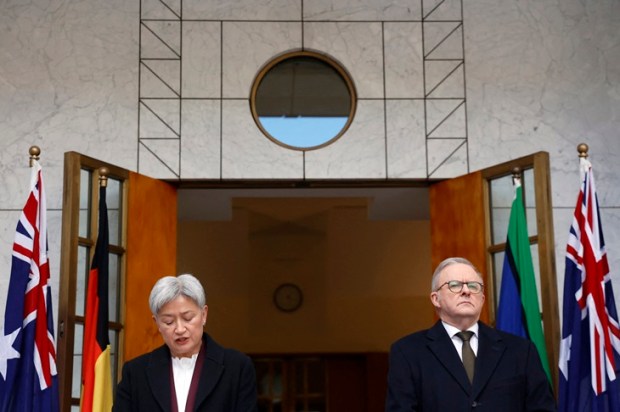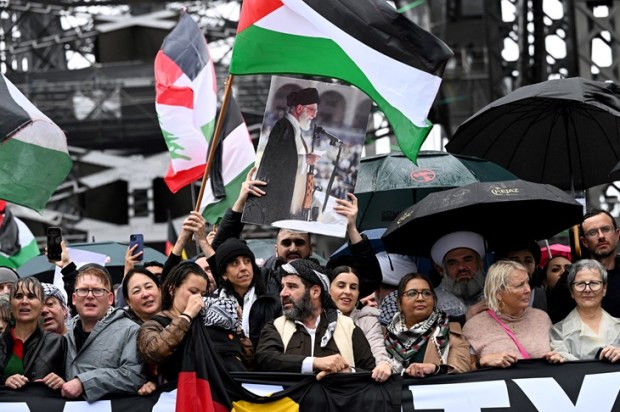Victoria, Queensland, and South Australia are in the midst of signing treaties with Aboriginal bodies and the other states of Australia are likely to follow very soon. If the Voice to Parliament ‘Yes’ vote is successful, then no doubt thereafter the federal government will be pressured into such a treaty.
The major issue therefore is, what is a treaty?
The Australian Department of Foreign Affairs and Trade defines a treaty as: ‘…an international agreement concluded in written form between two or more states (or international organisations) and is governed by international law. A treaty gives rise to international legal rights and obligations.’
The Vienna Convention on the Law of Treaties defines the term ‘treaty’ for the purpose of the convention to mean a written international agreement between states governed by international law.
Treaties invoke Australia’s obligations under international law.
International treaty obligations permit regulations to be made to give sanctions imposed by the UN Security Council under Chapter VII of the UN Charter and Australia is a signatory of the United Nations Declaration on the rights of Indigenous peoples. Any treaty could therefore invoke UN Sanctions if deemed to have been breached.
One of the key objectives of the Uluru Statement from the Heart, apart from the Voice to Parliament, is the making of a Treaty with the Australian government.
All treaty actions must be approved by the Federal Executive Council. They pursuant to S 61 of the Constitution and have significant powers in relation to treaties.
Paragraph 2 of the proposed amendment to the Constitution reads: ‘The Aboriginal and Torres Strait Islander Voice may make representations to the Parliament and the Executive Government of the Commonwealth on matters relating to Aboriginal and Torres Strait Islander peoples.’ It appears that the Voice, therefore, could possibly make representations to the Executive branch of government in relation to treaties that have the power to impose international obligations on the Australian people.
Representations are not advice. In a courtroom, lawyers make representations to the bench on behalf of their client, they do not give advice to the bench. Lawyers may assist the judge by providing legal principles they wish to argue but they do not give advice. It is therefore not correct to say the Voice is an advisory body when in fact it is making representations.
Unlike a courtroom, there is no one making representations to the Executive contrary to the Voice representations, so the opposite view cannot be made. If the Australian people do not support a treaty, for example, who provides their voice? It can’t be the government because they are the arbitrator of the dispute.
The ‘Voice to Parliament’ is the vehicle through which the Uluru Statement from the Heart is to be made law in Australia. The word ‘sovereignty’ is mentioned five times in the Uluru Statement.
The Uluru Statement suggests that Aboriginal and Torres Strait Islander peoples have called for a formal treaty or treaties to recognise their sovereignty as that sovereignty has ‘never been ceded or extinguished and co-exists with the sovereignty of the Crown’.
The definition of sovereignty is: ‘Supreme power, especially over a body politic. An autonomous State.’ State sovereignty is the ability of a nation-state to make laws for its citizens without external interference.
By freely using terms such as ‘treaty’ and ‘sovereignty’ the Voice is not calling for a united Australia under one nationalistic flag, but a union between two sovereign States.
If this is the case, the Prime Minister of Australia should ask the Australian people if this is what they want.
To add even more credence to the two sovereign states theory is another word now freely being used, namely ‘reparations’.
The meaning of ‘reparations’ involves a monetary or other compensation that is payable by one country to another country or an individual for a historical wrong. Compensation is exacted as an indemnity from a defeated nation by the victors. An example of reparations is the compensation demanded of Germany by the Treaty of Versailles after the first world war. Such reparations placed upon Germany resulted in hyperinflation, the fracture of the Weimar Republic, and the destruction of the German currency.
There are democratic countries that have had treaties between the politic and Indigenous peoples. The United States and Canada both had treaties to end wars between the Indigenous and non-Indigenous people. Both countries have very powerful constitutions as the basis of their democracies. Canada recognises their Indigenous peoples in their Constitution, but neither country has invited a race-based Indigenous Voice into their constitutions.
New Zealand has the Treaty of Waitangi between the Crown and the Maori people, made in 1840. It was written both in English and in the Maori language. In the English version, the Maori ceded sovereignty of New Zealand to Britain. Over a hundred years later there was an issue as to whether the Maori translation ceded sovereignty. The Waitangi Tribunal, a commission of inquiry set up under the Waitangi Tribunal Act 1975 investigated the issue. The result is that no clear sovereignty exists and there appears to now be co-sovereignty in New Zealand between the Maori population and the non-Indigenous politic. New Zealand does not have a constitution therefore they cannot have an Indigenous Voice enshrined in a non-existent constitution.
The rhetoric surrounding the Voice to Parliament all points to a two-state co-existing sovereignty between Australia as one sovereign and Aboriginals and Torres Strait Islander peoples as the other sovereign.
If this is not the case then now is the time for the Prime Minister, the Voice working group, and all proponents of the ‘Yes’ campaign to swear their allegiance to the Australian nation, united under one flag.
Otherwise, it is incumbent upon Prime Minister Albanese, who is the Prime Minister for all Australians to explain that a ‘Yes’ vote is a vote to ultimately surrender half of Australian sovereignty to Aboriginal and Torres Strait Islander peoples, whoever that may be.
It is time for some genuine truth-telling.

























